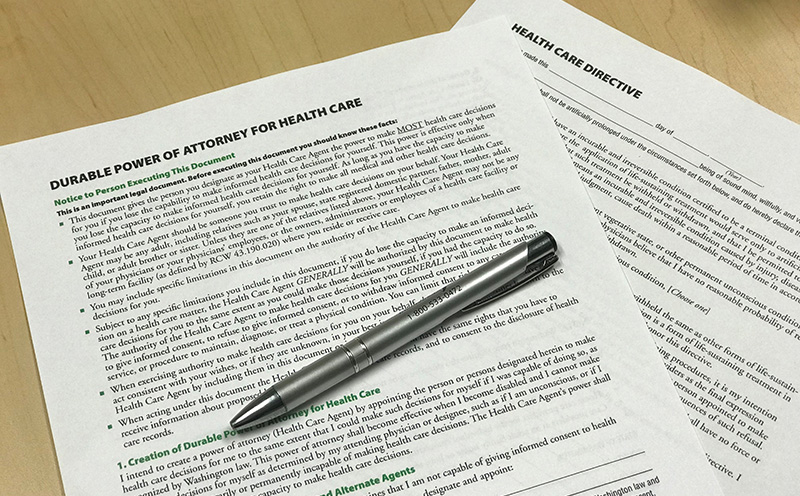
You have the right to make your own healthcare decisions. Very often these decisions are made together with your family and the advice of your doctor. It’s usually best to include family and physicians in this process to avoid conflict when end-of-life decisions arise: family members may have personal beliefs that differ from yours and physicians may give insight to end-of-life issues not previously considered.
How to Assure Your Choices will be Honored
Before you become ill, make your choices known by completing an advance directive. This relieves your loved ones from difficult decisions should you ever become unable to make choices for yourself. The most common types of advance directives are:
- Durable Power of Attorney for Health Care
- Health Care Directive (also known as a Living Will or Directive to Physicians)
- Physician Orders for Life-Sustaining Treatment (POLST)
- Mental Health Advance Directive

